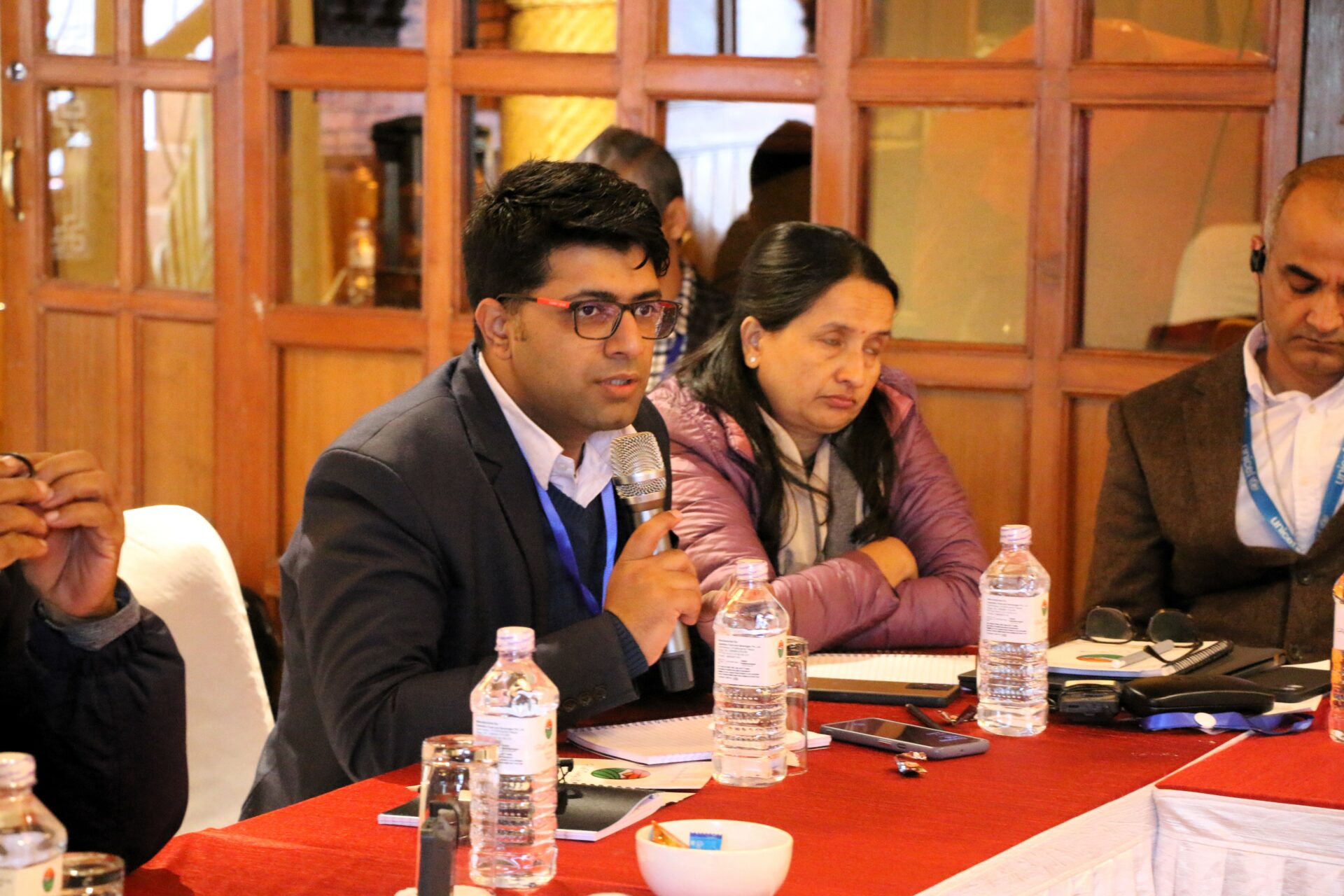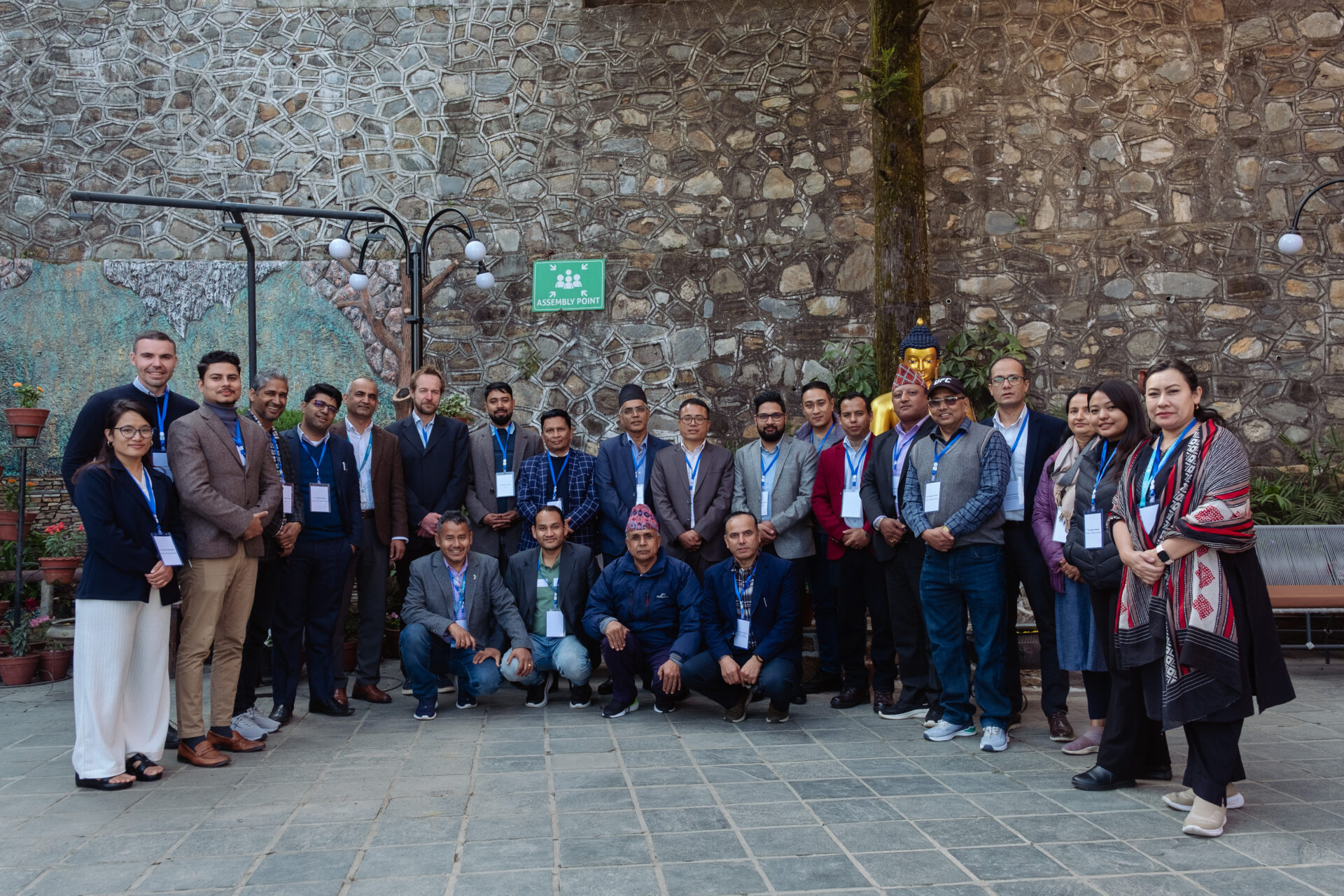The ADEPT workshop brought together key stakeholders to address the complexities of supply chain bottlenecks and ensure faster, more reliable delivery of essential products
Kathmandu, Nepal – “Shared problems call for shared solutions” – this sentiment set the tone for the recent Alliance facilitated Accelerating Delivery of Essential Products Together (ADEPT) workshop held in Nepal. The event brought together representatives from across the Government of Nepal, including the Ministry of Health and Population, Ministry of Finance, Customs officials, and the Ministry of Industry, Commerce and Supplies, to discuss and address the bottlenecks in Nepal’s import clearance processes. The goal was clear – to streamlining import processes to ensure faster and more reliable access to essential supplies like vaccines and related critical supplied.
Chris Holden, Alliance Project Development Manager, talking about the importance of collaboration in this process, said, “We’re here to develop a shared view among participants for potential short-, medium-, and long-term solutions. These solutions cannot be achieved by one entity or one organisation alone.”
Nepal faces significant challenges in importing essential health supplies. As a landlocked country, it relies on India’s Kolkata seaport for sea shipments. This dependence creates logistical hurdles, including extensive documentation, cross-border customs coordination, and overland transport through mountainous terrain. Lengthy approval processes involving multiple agencies further add to delays and inefficiencies.
Recent data shows that import approvals for health supplies procured by UNICEF for Nepal can take up to three months. These delays risk compromising vaccine and medical supply quality, as their effectiveness declines over time. They also threaten to disrupt immunisation services, leaving children and families vulnerable.

Dr. Abhiyan Gautam, Chief of the Immunisation Section at the Family Welfare Division, highlighted the gravity of the problem, “In emergency contexts like the COVID-19 pandemic or the recent measles outbreaks, vaccines need to be deployed quickly. However, lengthy procurement and delivery times lead to concerns about the safety and efficacy of vaccines. It’s clear that the process needs to be expedited.”
The workshop provided a platform for stakeholders to analyse these issues and propose concrete solutions. Sessions focused on the current “as-is” processes, where inefficiencies were identified, and then envisioned “to-be” scenarios that could reduce delays. Participants also discussed broader administrative and process reforms, including advocating for policy improvements, enhancing inter-agency coordination and improving information sharing.
Kieran Patrick Bligh, Project Manager with UNICEF Supply Division, explained the broader vision, “The aim is to move supplies as quickly as possible, leveraging existing systems and mechanisms where available to ensure children have sustainable access to essential supplies. This is critical not only during emergencies but also for preventive measures and routine immunisation programmes.”
Achyut Dhungana, Under Secretary at the Ministry of Industry, Commerce, and Supplies, reflected on the significance of the workshop, saying, “This workshop comes at a critical time for Nepal, just as we’ve emerged from the COVID-19 pandemic. Cutting down the barriers to ensure access to essential supplies is not just necessary – it’s urgent. I hope this bold vision can be turned into actionable solutions.”

